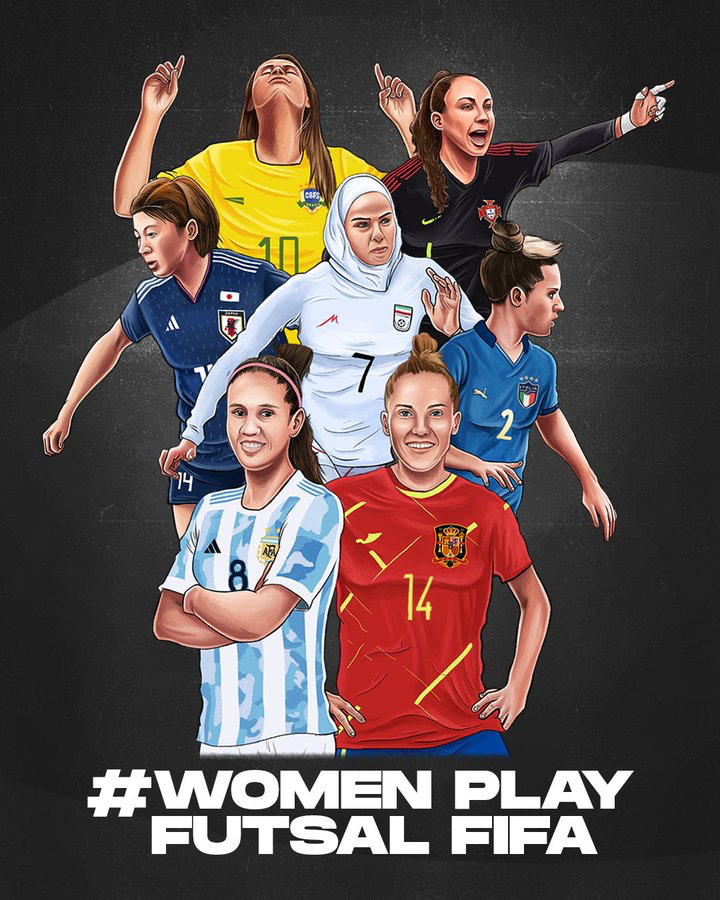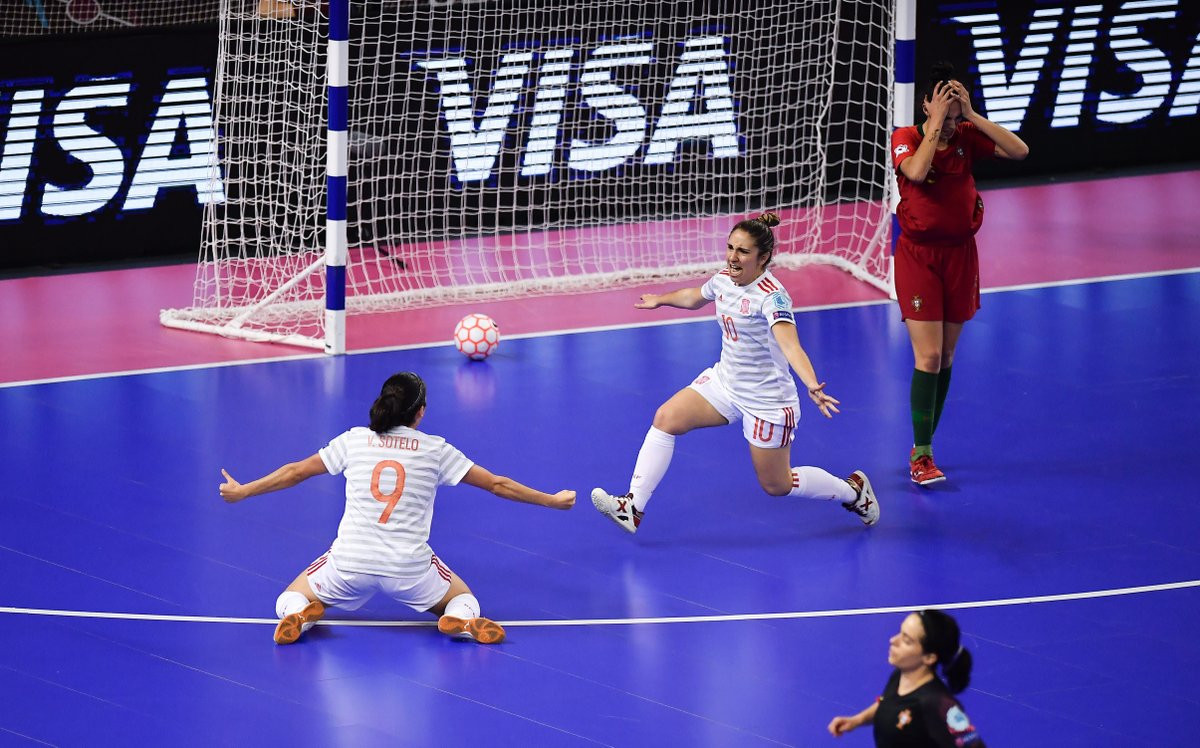Futsal isn’t for everyone

FIFA announced the first Women’s Futsal World Cup would take place on 2024, but its venues, dates and qualifying process are still missing while days tick away
The football world’s most powerful association wants to embrace the motto ‘Football is for everyone’. However, it seems the women who play futsal are not included in it.
In December, FIFA announced the establishment of the first Women’s Futsal World Cup for 2024, but that looks to be a strategy to silence the criticism about the Qatar World Cup, rather than a project to develop the women’s game, as there aren’t any official details about the competition yet.
This inaction is another example of women suffering institutional mistreatment and under-representation in sport – this time in the futsal scene, like the last 33 years.
Legends like Amandinha – the eight-time world’s best female futsal player – or Anita Luján – two-time European champion – still haven’t experienced the goosebumps of playing in a World Cup, while men are on their way to compete in the tenth edition. The first one took place in 1989 in the Netherlands, where Brazil beat the home side 2-1 in the final.
The lack of interest in futsal, always considered as the lower version of football, combined with its struggle to generate financial revenues give those in power reasons to ignore not just the sport but specifically the women’s scene that only has been heard from 2015 to now after the inception of the Women’s Futsal Players Association (AJFSF).
This organization was born in 2010 in Spain to fight for the rights of women futsal players. Its efforts have been key to make the Women’s Futsal World Cup possible after pushing FIFA on several occasions. But the journey wasn’t easy and is still not completed.
Together with international players, AJFSF sent a letter in 2016 to Fatma Samoura, Secretary General at FIFA, and Sarai Bareman, Chief Women’s Football Officer at FIFA, to demand the inclusion of the tournament in the calendars. The giant corporation was launching a strategic plan for women in football that same year for the period between 2018 and 2022.
The answer? A poor statement with the following sentence: “FIFA compromises to develop new competitions for national teams, futsal and clubs”.
According to Natalia Orive, President of AJFSF, their meetings with FIFA always ended in nothing: “They recognized on several occasions that our claims were right and women would enjoy the tournament in the future, but no further explanations were given”.
In September 2021, tired of being ignored, the AJFSF sent another letter to FIFA and published it on social media. They demanded a breach of the code of good governance, that proclaims the organization must be at the forefront of promoting gender equality in football and combating discrimination.
[COMUNICADO OFICIAL] Desde el Sindicato de Jugadoras de Fútbol Sala confirmamos que ya está enviada nuestra carta a FIFA. #WomenPlayFutsalFIFA pic.twitter.com/mZuvxbO5cW
— AJFSF – Asociación de Jugadoras de Fútbol Sala (@AJFSFemenino) September 11, 2021
This statement couldn’t be more accurate, as FIFA still haven’t shown the desire to make improvements in women’s futsal. They launched eight women’s football development programmes for the 2020-2023 period, but only one of them was related to futsal with the creation of a new National League in Kuwait.
The inexistent compromise is also demonstrated with the lack of an international calendar, which means the tournaments controlled by organizations like UEFA (EUROS) and CONMEBOL (Copa América) take place when domestic leagues are still ongoing, affecting clubs and competitions around the world.
This inaction is reducing the visibility of the sport and not tackling the low professionalization levels of women in futsal. In the Spanish league, which is widely considered the best in the planet, only 29 players earn more than 1,000€ monthly.
FIFA reacted to the letter scheduling new meetings with the AJFSF, but the results weren’t any different. “The promise of celebrating the tournament was on the table, but no further progress was made afterwards” Natalia Orive said.
On 2 November 2022, representatives from 12 countries and the AJFSF conducted the first press conference of its history with the motto: “If they didn’t want to listen to us before… they will see us now”. Their goal was to show the world the insensitive reactions of FIFA in their meetings and the unequal treatment women futsal players experience compared to men and especially football.
The impact of their words and the criticism FIFA received for not tackling this situation were enough to achieve their target, as the organization announced on 16 December 2022 that the tournament would become a reality.
However, the competition is now on its way to becoming a pity, as nearly three months later nobody knows where it will be hosted, the dates and the qualifying process.
To put things in context, FIFA announced Qatar would host the 2022 Football World Cup in 2010, twelve years before the tournament took place. Moreover, they gave three years to Lithuania to prepare for the last Men’s Futsal World Cup of 2021.
There is no precedent of FIFA national teams tournaments with such a short time to be organized as the Women’s Futsal World Cup. But the silence of Jaime Yarza, Director of the futsal and beach soccer World Cups at FIFA, doesn’t bode well for the competition.
In addition, the space of time to organize the qualifying fixtures for a tournament of such magnitude is minimal, and will affect the calendars, but silence and uncertainty reigns now at women’s futsal.

UEFA are celebrating the futsal EUROS this March and CONMEBOL have the Copa América in September, which means FIFA will have to schedule an express qualification phase for the World Cup that will affect the normal course of domestic leagues.
A dramatic shift must take place as soon as possible at FIFA to launch a tournament that lives up to the 33 years of struggle and under-representation women have endured in futsal. FIFA must demonstrate that not only football, but also futsal, are for everyone.
POTTER, HOPCUTT, AND A DESK IN EAST LONDON – A chat with author George Mallett